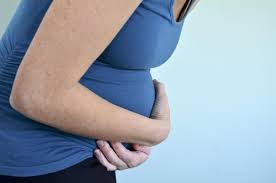

Are you expecting your first baby soon? Are you worried about how you will identify the labor pains? If you relate to any of these situations, then you must give this post a read.
The unpredictability of labor makes all pregnant women anxious, particularly the first-time mommies. Are those cramps, contractions or just an upset tummy? If you are clueless about the signs of labor, worry not! Check out this article to know all about labor!
Several hormonal and physical changes herald labor. Some of the most common signs of labor are:
Lightening is the process of the baby settling into the pelvis just before the onset of labor. It may occur a few weeks or hours before the labor. It may cause an increase in the frequency of urination. Some women may not experience lightening at all and yet may go into labor.
During pregnancy, the mucus plug accumulates at the cervix. It is a natural way of protecting the baby from infection. As you progress towards labor, the cervix begins to open and leads to the discharge of mucus. This is an early sign of labor.Labor may begin soon after it or even one or two weeks later. You may also see a little bloody mucus. Fret not, as it is perfectly normal.
Contractions are a telltale sign of labor. Labor contractions cause discomfort or dull ache in the lower abdomen and back, along with an increase in the pressure in the pelvis. It starts from the back and radiates across the abdomen and vice versa. If the contraction is mild then ignore it and relax, but if you feel it is progressing then start packing your hospital bags. As the labor gets going, the contraction will become longer and more frequent.
Spontaneous rupture of the membranes or “breaking of the waters” is a strong indicator of labor. It happens when the amniotic sac ruptures and results in the gushing of the amniotic fluid from the vagina. Almost 80% women go into labor within 12 hours of the “breaking of the waters”. However, according to a study, just 8% women reported the rupturing of their amniotic sac before having contractions.
Diarrhea is another sign of labor. During the early part of labor, the body begins to release prostaglandins, which cause the uterus to contract. Prostaglandins also stimulate the bowel movement. The body naturally empties the bowel to make way for the baby.
Back pain is normal throughout pregnancy. If the back pain becomes extremely harsh, then it may be a sign of “back labor”. Normally, a baby faces the mother’s spine while descending from the birth canal. However, in some cases the baby’s skull may hit the mother’s spine while descending and cause excruciating back pain.
Rush to a doctor if you experience any of the following
Subscribe to our mailing list and LIKE US for more updates on all things related to your pregnancy!
Article was originally posted on Momjunction
Copyrighted Pregnancy & Baby by Mummys Market 2019


